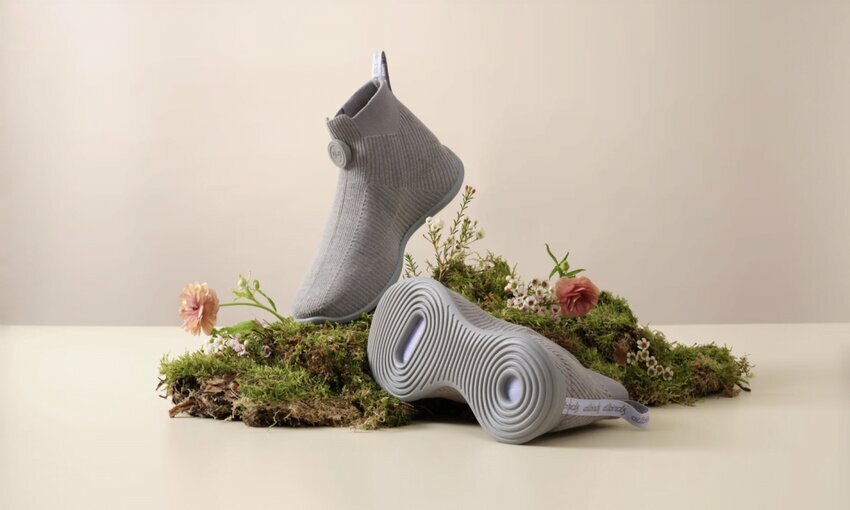 (Credit: Allbirds)
(Credit: Allbirds)Direct-to-consumer shoe brand Allbirds has introduced its zero carbon shoe, M0.0NSHOT – and has asked that the footwear industry copy it.
The shoe itself has a carbon footprint of a net 0 kilograms of carbon dioxide equivalent, according to Allbirds. The shoe is made of carbon-negative regenerative wool sourced from Lake Hawea Station; a carbon-negative bio-based midsole foam made with sugarcane and formed via supercritical foaming; a logo made with methane-capture bioplastic; and a sugarcane-based polyethylene packaging, a carbon negative material. Lake Hawea Station is a climate-positive farm in New Zealand.
In addition to introducing the shoe, Allbirds distributed a toolkit to attendees at the Global Fashion Summit in Copenhagen, where M0.0NSHOT was revealed, and urged industry competitors in the audience to create their own version.
“This is one small step for Allbirds – but it could be one giant leap for the footwear industry, if others join us. Unlike the space ‘race’, this is a relay – we’re all on the same side,” said Allbirds CEO Tim Brown. “M0.0NSHOT is Allbirds’s greatest achievement, but it’s meaningless without others taking action: which is why we felt compelled to open-source our learnings, so others can pick up the baton and take us forward.”
Allbirds, which first became popular thanks to its shoes made of wool, has been working toward a carbon-negative shoe for some time. The company created SweetFoam, its midsole foam made with the carbon-negative, sugarcane-derived green EVA. The foam informed what is used in M0.0NSHOT. The company also teamed up with Adidas in recent years to create the lowest carbon emission sports shoe at the time.
Allbirds began labeling its products with carbon footprints in 2020, around the same time that other companies and brands started doing the same. What has become known as carbon labeling has grown in popularity across consumer brands, with companies such as Unilever, L’Oreal, and Just Salads adding such information to their products in 2021.
Carbon labeling can inform consumers about the carbon footprint of goods and services, and some research has shown such labels can have an impact on what consumer purchase. In addition, the labels can incentivize companies to reduce their carbon footprint and reduce emissions.
Editor’s note: Don’t miss the virtual Environment+Energy Leader Solutions Summit ’23 on July 18-19. Learn tangible, innovative solutions to help with sustainable transitions across industries. Speakers from companies and organizations including Schneider Electric, Cority, Jump Associates, Mycocycle, Plainsight, LRQA, the Alliance to Save Energy, and many more will share tactics and lessons that can help you solve your energy management, sustainability, and ESG challenges. Learn more about the #EESummit23, and then register today!